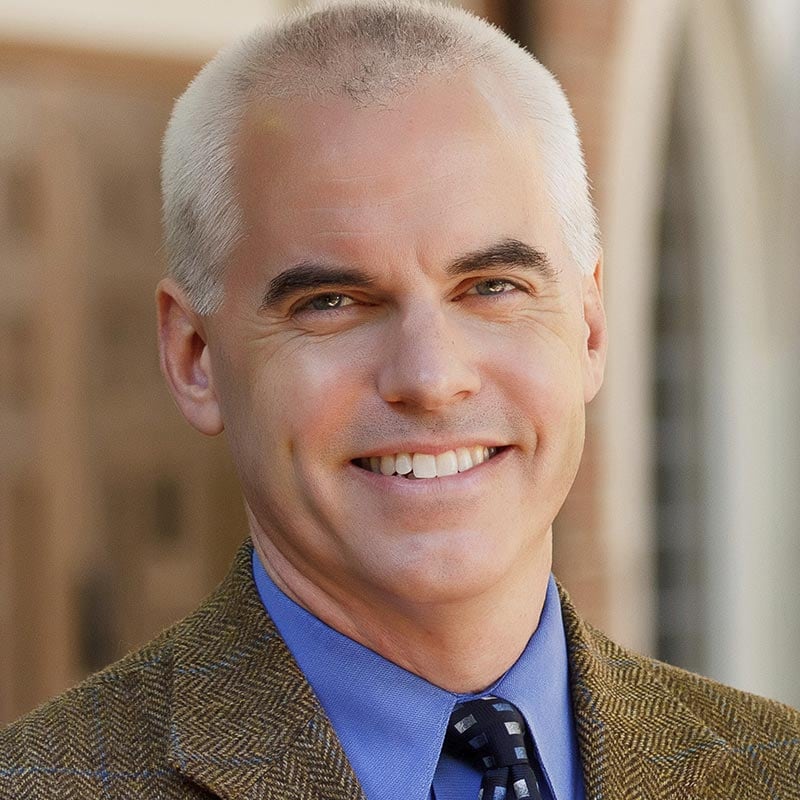What’s the hardest part of scheduling?
The hardest part of scheduling is that there is no one hardest part. Instead, it’s an insanely complex, multi-part balancing act. Use classroom space efficiently. Avoid curricular conflicts. Respect student time. Accommodate faculty availability and preferences. And so on.
What do you like most about making the course schedule?
For me, making a schedule is like exercising. I don’t enjoy doing it, but I enjoy having done it.
What does a great schedule accomplish for a school?
A great schedule maximizes student learning by giving them the flexibility to take the courses they want to take. Everything else — classroom availability, faculty preferences, etc. — is in service to that goal.
What is a common misconception about scheduling?
I don’t think people appreciate that making the schedule — challenging though that is — is actually the end of a months-long process of deciding what courses will be taught, finding the right faculty to teach them, and keeping track of the tons of idiosyncratic issues that emerge. I usually started working on the next academic year’s curriculum in November but didn’t start making the schedule itself until March.
Can you give us an example of a scheduling challenge?
Sure. It’s specific to schools where one semester (or year) is all required courses, to which the students are assigned, and after that it’s mostly electives, which the students choose for themselves. Like law schools.
In that context, one should recognize that scheduling any upper-level course at the same time as any other upper-level course always imposes a cost, which can be avoided by scheduling the upper-level course against a first-year course.
Suppose you have three big classrooms and two timeslots, into which you need to fit four first-year required classes and two upper-level electives. It’s better to put two first-year classes and one elective into each slot than it is to put three first-year courses in one slot and the two electives in the other slot with the other first-year class. This is because whenever upper-level courses are scheduled against each other, there may be students who want to take both but cannot. But there is never a student who wants to take both a required first-year course and an upper-level elective (with very rare exceptions).
In other words, making a law school schedule is really making two schedules. The first is for the required first year, and you don’t have to accommodate student choice for that one; it’s all about classroom and faculty availability. The second is for the upper-level electives; here student choice is really important (in addition to classroom and faculty availability). So you can use the fact that student choice doesn’t matter in the first-year schedule to maximize student choice in the upper-level schedule.
Do you ever get pushback on the schedule?
Pushback on the schedule comes with the territory. No schedule will ever be perfect for everyone, so just admit its flaws and promise to try to do better next time. I especially did that with faculty pushback — e.g., “I know you didn’t get your preferred teaching time this year, but I’ll make a note of that and make sure to give you first dibs next year.”
What’s the best compliment you ever received about a schedule you worked on?
I’m not sure I’ve ever received a compliment on a schedule. If a schedule is done well, no one notices, which is as it should be. If it’s not done well, you’ll hear about it!
What challenges does the current pandemic pose for scheduler-makers? How will you deal with those challenges?
I can’t really speak to the pandemic challenges, as I haven't been responsible for the schedule since 2018. Those who make schedules today have my deepest sympathies — I imagine that safe in-person teaching during a pandemic basically reduces the size of available classrooms by around 75%!
Do you have any advice for someone just starting as a schedule-maker?
It’s really complicated. You’ll make mistakes. Own them, apologize for them, learn from them, and move along.
